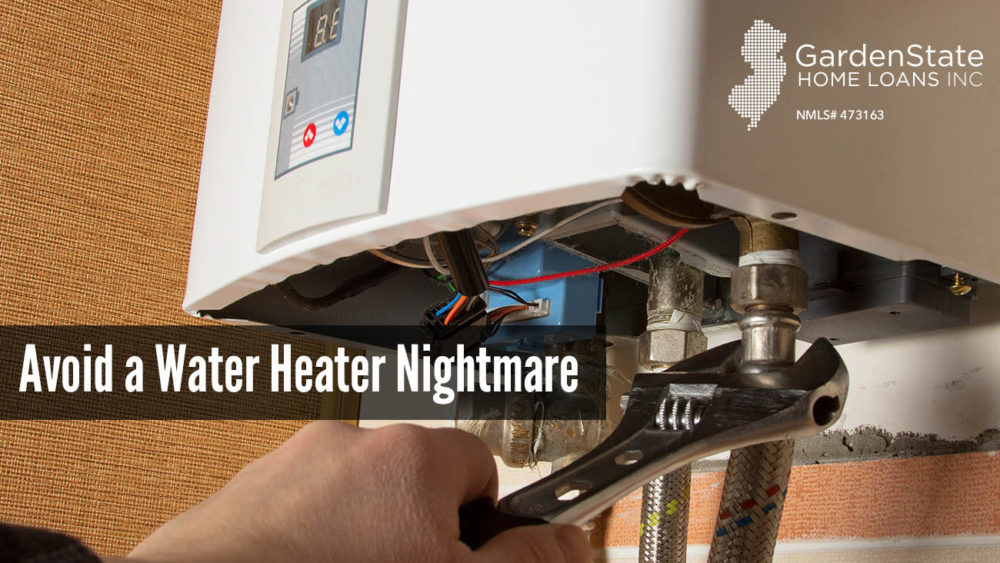After coming home from a long day of work, there’s nothing like taking a hot shower or bath to relax. But, there’s one problem, no hot water. Of course, no one expects their water heater to fail, but the unfortunate truth is that it eventually will.
Your water heater is one of those things in your home you don’t think about until it breaks. If you are moving into a new home, make sure that a home inspection checks the water heater before you move in! You don’t realize how much you use hot water each day until you don’t have it! We use hot water to shower, wash our clothes, disinfect our dishes, and much more. So when the nightmare of it breaking happens, it’s a catastrophe.
According to the U.S Department of Energy, the average household spends close to $400-$600 a year on heating their water. Heating water is the second largest expense in a home, accounting for 14%-18% of utility bills. Luckily, there are ways to avoid a water heater nightmare before it happens.
Signs the Nightmare is Coming
If your water is coming out rusty when the hot water is on, it might be a sign that your water heater is rusting from the inside. and may begin to leak soon. Another issue could be the pipes may be rusting. To avoid replacing your water heater, and be sure that it’s only the pipes, start by getting 5-gallon buckets. Drain the water heater 3 times to see if it’s the water heater or not. If the water is still coming out rusty by the third time, it’s absolutely the heater and not the pipes.
When you see a hint of moisture or water leaking around your water heater, it may be time to start looking for a new one. There should never be any leakage from your water heater. If there is, it’s a huge indicator that something is wrong
Besides leakage, the age of the heater is a huge determining factor of when it’s about to go. If you have just bought your home, a good way to figure out the age of it is by the serial number. The serial number code will something like C071052630. C is the third letter of the alphabet, which corresponds to months, that is March, the third month of the year. The following digits 07, is the year it was made. Every manufacturer has similar codes. Going to their website will aid in your efforts to figure how to read them.
Once your water heater starts making noises and rumbling, it means the end is near for it. As sediment creates countless layers that fall to the bottom of your tank, it will begin to corrode. The sediment will harden and begin to wear the metal creating holes or crack the structure.
Reasons for Water Heater Damage
- High Water Pressure: Water pressure that is too high can damage not only your water heater but your pipes and other appliances too. These things can only withstand a certain PSI and if it exceeds it can potentially burst.
- Internal Rust: Sacrificial Anodes are highly active rods that protect the water heater from corroding and over time need to be replaced.
- Wrong Size Heater: Water heaters come in a variety of sizes and can be a huge factor to why some water heaters need more repairs.
- Sediment Build Up: Minerals from water separate when water temperature rises. The minerals fall to the bottom of the water heater which over time builds up and reduces water efficiency. This can lead to damage especially if you have hard water.
- Corrosive Fumes: For combustion to occur, water heaters need to draw air in. If the quality of the air is poor is can lead to your water heater corroding resulting in failure.
- Old Age: Typically, water heaters are meant to last 10-15 years
Conduct Routine Maintenance
Due to sediment buildup, flushing your water heater two times a year is a good idea. This can affect the storage capacity of the time and cause it to overheat. Draining the tank is extremely easy. All you have to do is attach a hose to the drain valve at the bottom of the heater and take a flathead screwdriver to open the valve. After you drain the tank, you can close the valve and remove the hose.
Also, it’s good to check the pressure relief valve, a key safety feature. This valve is used when the water heats up because when the temperature of the water rises, it expands and exerts excess pressure. That’s when the valve comes into play to release the pressure. The pressure relief valve should be checked at least once a year and be kept no higher than 80 PSI.
Replacing Your Water Heater
You should replace your water heater every 10 years for gas and 15 for electric. If your family has grown, you might want to consider upgrading it as you and your family may use more water now. There are many different size calculators online, you should check the one from your specific manufacturer for the most accurate estimate as to what size you really need.



Comments are closed.